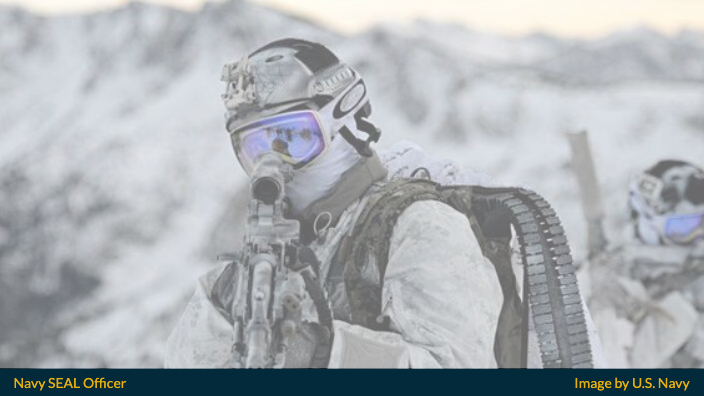From their grueling training to the dangerous missions they carry out, Navy SEAL officers are some of the most highly respected members of the military.
There is a common assumption that all officers in the Navy SEALs are required to engage in combat; however, the actual situation is more complicated.
This article will explore whether Navy SEAL officers engage in combat and how long an officer can stay operational compared to their enlisted counterparts.
What is a Navy Seal Officer?

A Navy SEAL officer is a highly trained individual who commands and organizes the actions of the special operations unit of the United States Navy, that is, they conduct planning, organizing, and executing missions on land, sea, or air to accomplish their objective.
Navy SEAL officers are Unrestricted Line officers in the Navy, meaning they have a broader scope of responsibilities and are held to more rigorous standards than other officers.
They have to be able to lead their units under the most difficult circumstances, make good decisions under pressure, and be able to communicate with all sorts of people.
They need strong leadership qualities and the good judgment to exercise them in a split second sometimes under life-and-death situations. Navy SEAL officers have to be in top physical condition to survive their line of work.
To become a SEAL officer, individuals must first complete an Officer Candidate School (OCS) program offered by the Navy, which focuses on training them in areas such as leadership, tactics, weapons systems and maritime operations.
Then, they go to Basic Underwater Demolition/SEAL (BUD/S) training, which is a grueling six-month program designed to test their physical and mental limits. After successfully completing BUD/S, they become an officer in the Navy SEALs.
A Navy SEAL officer is a highly trained and capable leader who is prepared to take on any mission in any environment. This profession requires commitment, dedication, and the willingness to go above and beyond.
Do Navy Seal Officers See Combat?
Short answer—Not really. Navy SEAL officers lead their troops into combat and must be prepared to fight, but their primary role is supervising and commanding their troops, so they are usually not in the thick of things.
Most of their battles are actually behind-the-scenes types—planning, organizing, and executing missions with an eye toward reducing risk to personnel.
What this means is that just because Navy SEAL officers may be present during any given combat operation, it does not mean they are in the thick of fighting.
As a Navy SEAL officer, you will lead and take part in special operations conducted on land, at sea, or in the air. Where you will be concerned with mission planning and execution, you may also have to face combat during your deployment.
In either case, for a mission to be successful, you have to be ready for difficult situations and make rapid decisions.
You will also be expected to be at an exceptional level of physical fitness in order to perform your duties safely and effectively. Depending on the mission, one can find themselves in close-quarters combat or even direct action against enemy forces.
In other words, Navy SEAL Officers are quite likely to confront combat while being deployed, but much depends on what the mission is.
Junior officers spend more time in the front lines of combat than their senior counterparts, as the latter are more likely to be in command or operations roles. That being said, even the most senior Navy SEAL officers will sometimes engage in combat if necessary.
Apart from being trained militants, Navy SEAL officers have to be forceful leaders with excellent decision-making skills for when things get tough.
If you have what it takes to serve your country as a Navy SEAL officer—courage, strength, and determination—this career might be for you.
Join the ranks of our nation’s most elite forces and be prepared to take on any challenge that comes your way.
Difference in Operational Service for an Officer Compared to an Enlisted SEAL
Compared to enlisted SEALs, officers typically stay operational for a shorter period. After 10-12 years of deploying and training, it is common for Officers to become less involved in the platoon setting.
Instead, they often move into higher positions, such as squadron commander at the United States Naval Special Warfare Development Group (DEVGRU). If the officer is capable, this is how they can extend their operational life well into their mid-30s.
Although this is a physically demanding job, officers in the Navy SEALs go through rigorous training and years of experience to ensure that they are prepared for any situation.
The veterans with experience become teachers and mentors as they build up their expertise over the course of their career.
If you are interested in becoming a Navy SEAL officer, remember that this career requires strength, courage and determination. With hard work and dedication, you can become an integral part of one of the nation’s most elite forces.

